Jihad seems to hit France harder than other countries, with more than 1,000 young people leaving to fight on the side of ISIS or other jihadis in Iraq and Syria, and now the murderous attack by two men of Algerian descent on the satirical weekly Charlie Hebdo. Why, and where will this latest attack lead?
There are three points to keep in mind as we watch the investigations play out.
First, France has been more closely engaged with the Muslim world longer than any other Western country. Since 1830, when it conquered Algeria, it has seen much of Muslim Africa as its own backyard. And after World War I, France took control of Syria and Lebanon as well. Many French settled in North Africa, and after World War II, many North Africans came to France to work in new factories, most settling in poor areas in Paris, Lyon, and the industrialized north. In the post-industrial era, factories were shut down but the settlers stayed. And it is their children and grandchildren who in 2005 exploded in rage over their exclusion from French society. The 1995 movie La Haine showed this rage before the fact—and also made clear that these explosions had nothing to with religion.
France left Algeria only at the end of a long and bloody war, from 1954 to 1962, which continues to reverberate throughout the country, especially in the south, where Algerians who fought on both sides of the war settled in Provence and kept the conflict alive. Here is where the far-right National Front was founded by Jean-Marie Le Pen, a paratrooper nourishing anger against De Gaulle’s “abandonment” of French Algeria. His daughter Marine now leads the party.
But unlike other European colonial powers, the French never really left their former colonies, continuing to intervene economically and militarily to defend France’s national interests in Africa and the Near East. Now this means battling al Qaeda and ISIS in Mali, Iraq, and, perhaps in the future, Syria. So when disaffected young men and women tune in to jihadi web sites, they find French-speaking Muslims telling them of the sins their government is committing against their “brothers and sisters” in Iraq and Syria. Resentment at French racism, at the series of largely symbolic measures taken against Muslims, such as the 2010 ban on wearing face-veils in public, add to this anger, and lead some towards fighting.
Second, the French Republic has nourished a sense of combat with the Church—which for some means with religion of any sort. If in the 19th century, the Church retained its hold on young minds through its monopoly of primary schools, by the end of that century the state had built a secular and free system of schools. Thereafter, the Dreyfus affair pitted an openly anti-Semitic Catholic establishment against pro-Republican intellectuals, Vichy gave powers to anti-Jewish French officials, and after the war schools continued to be the focal point, a microcosm, of the battle between religious and secularist camps.
France Stands in Silence for Terror Attack Victims
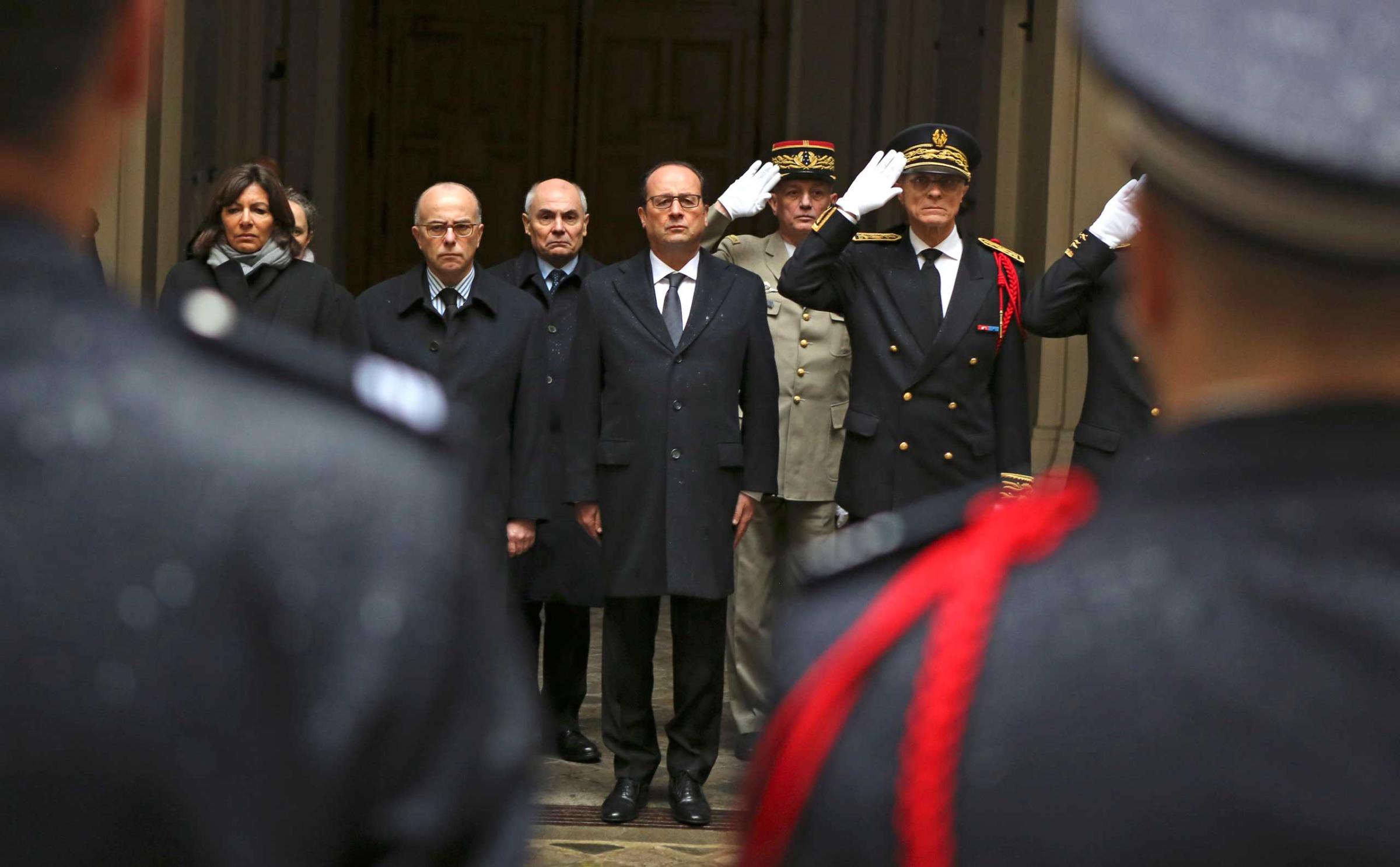
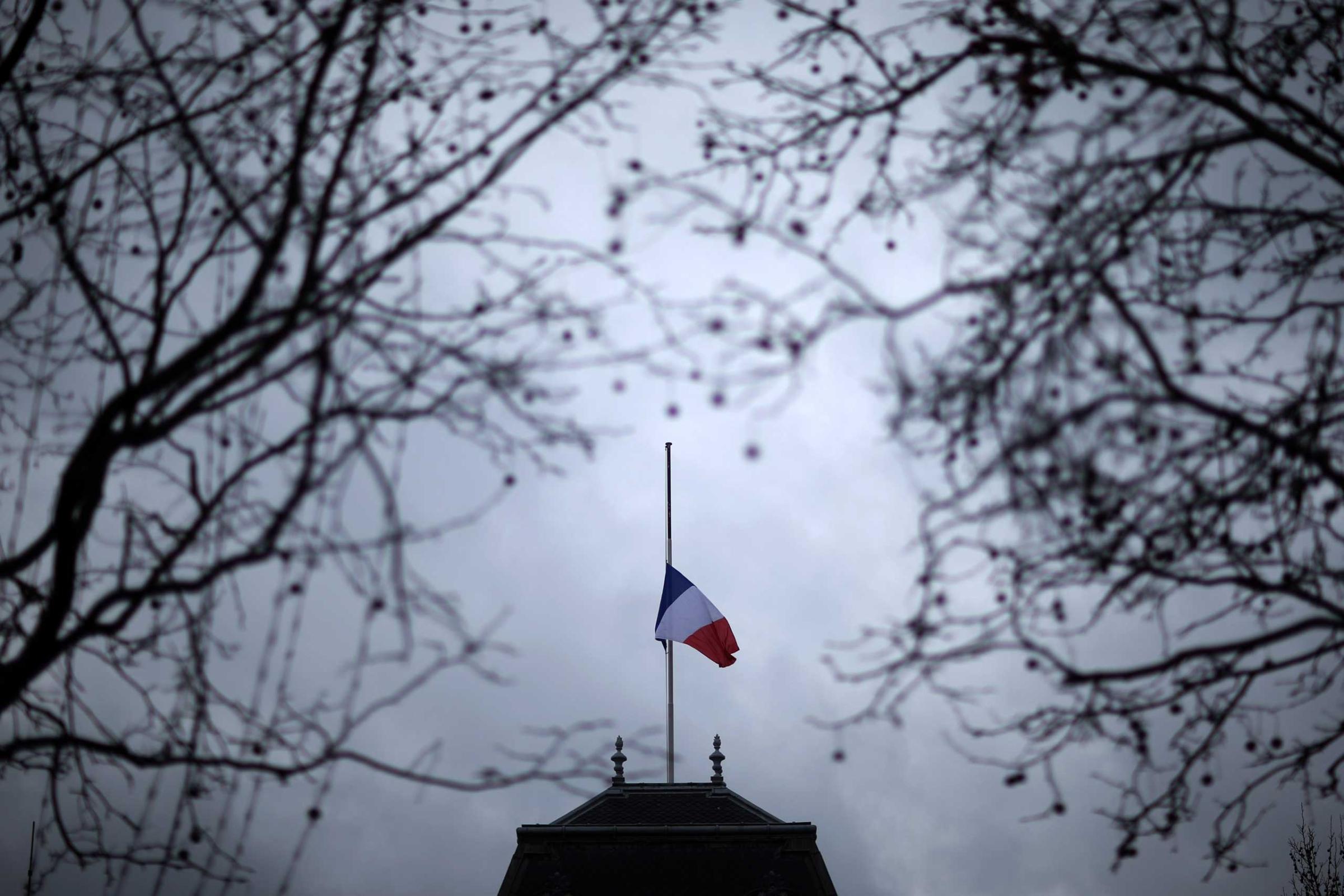
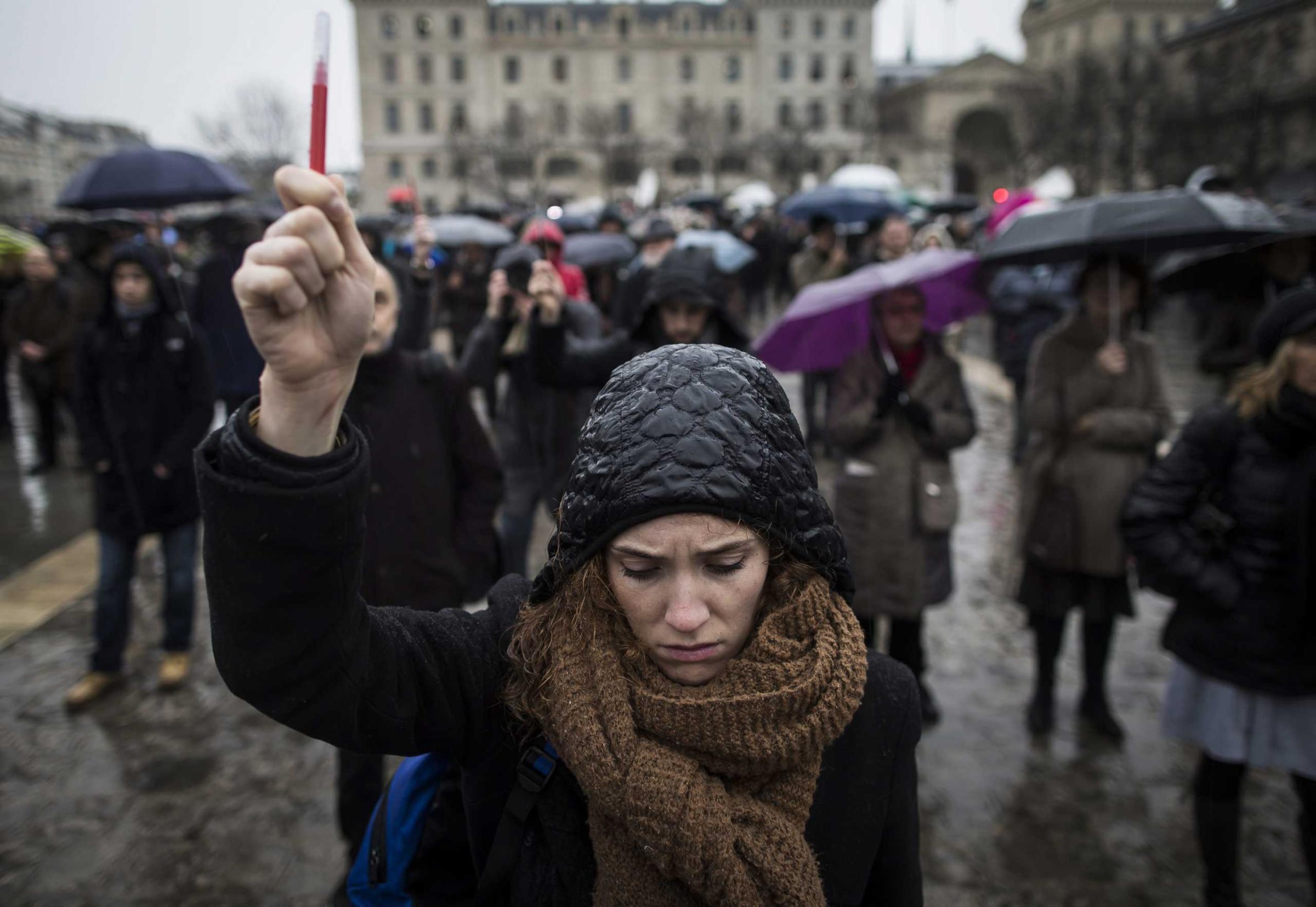
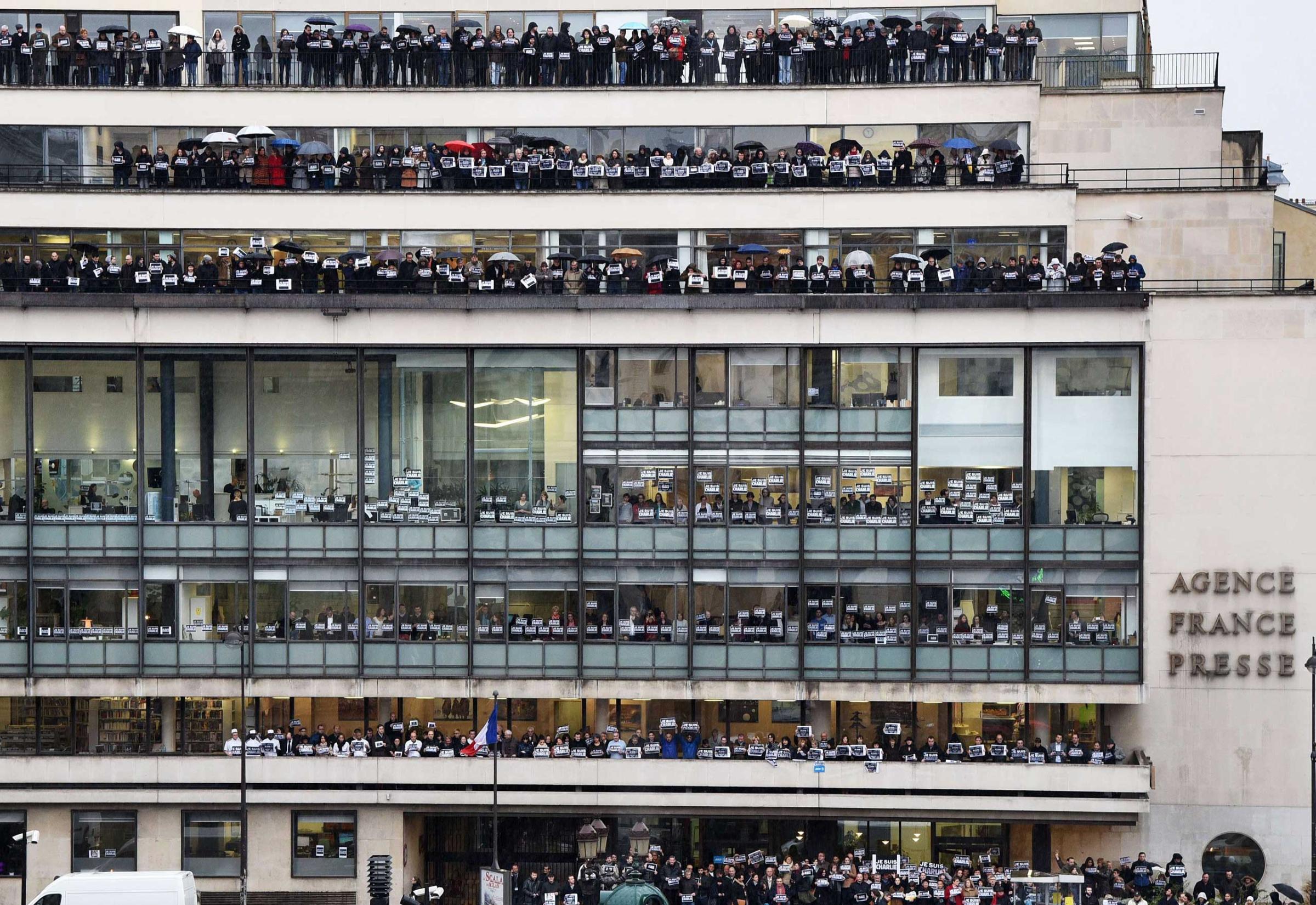
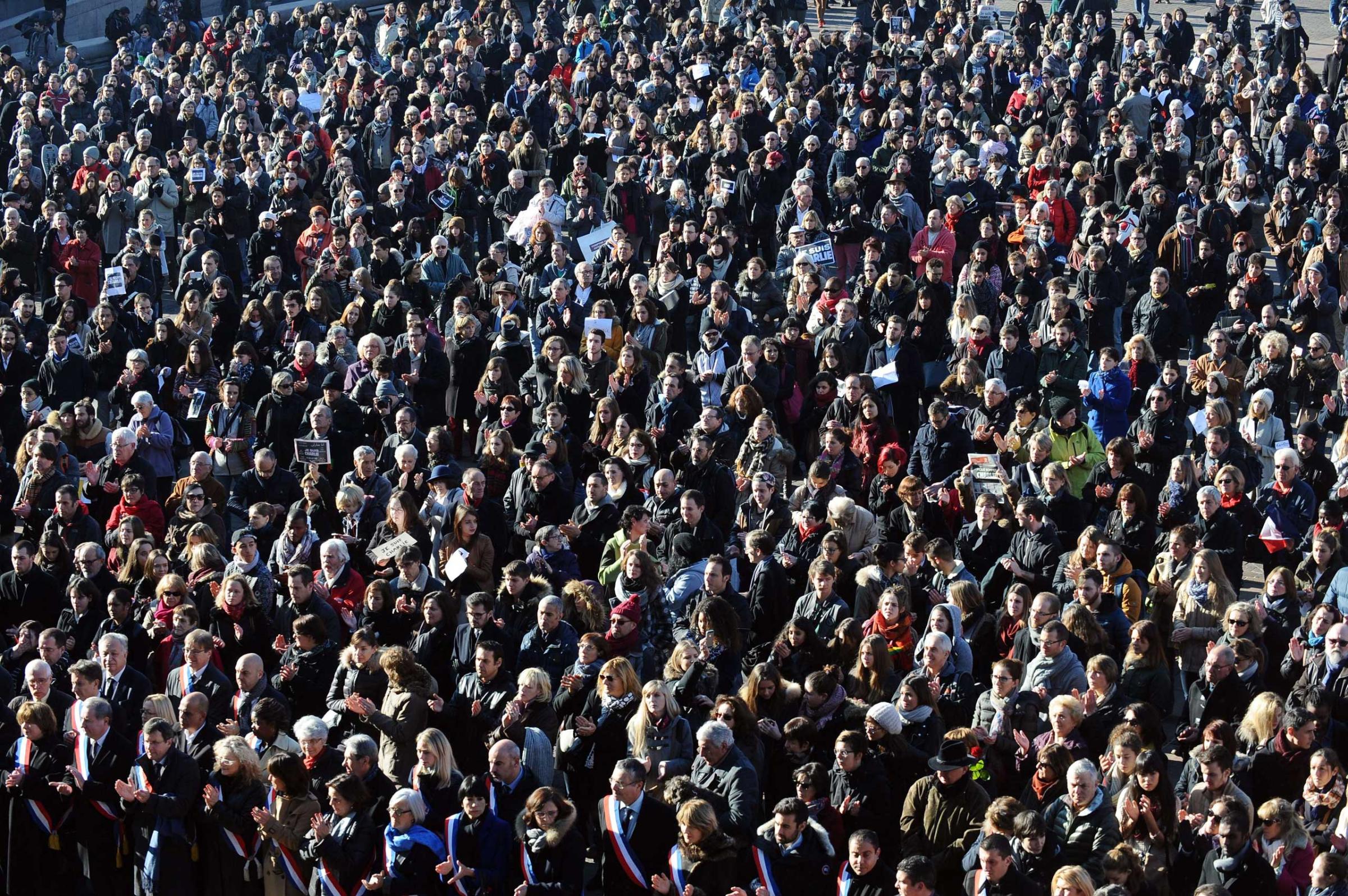
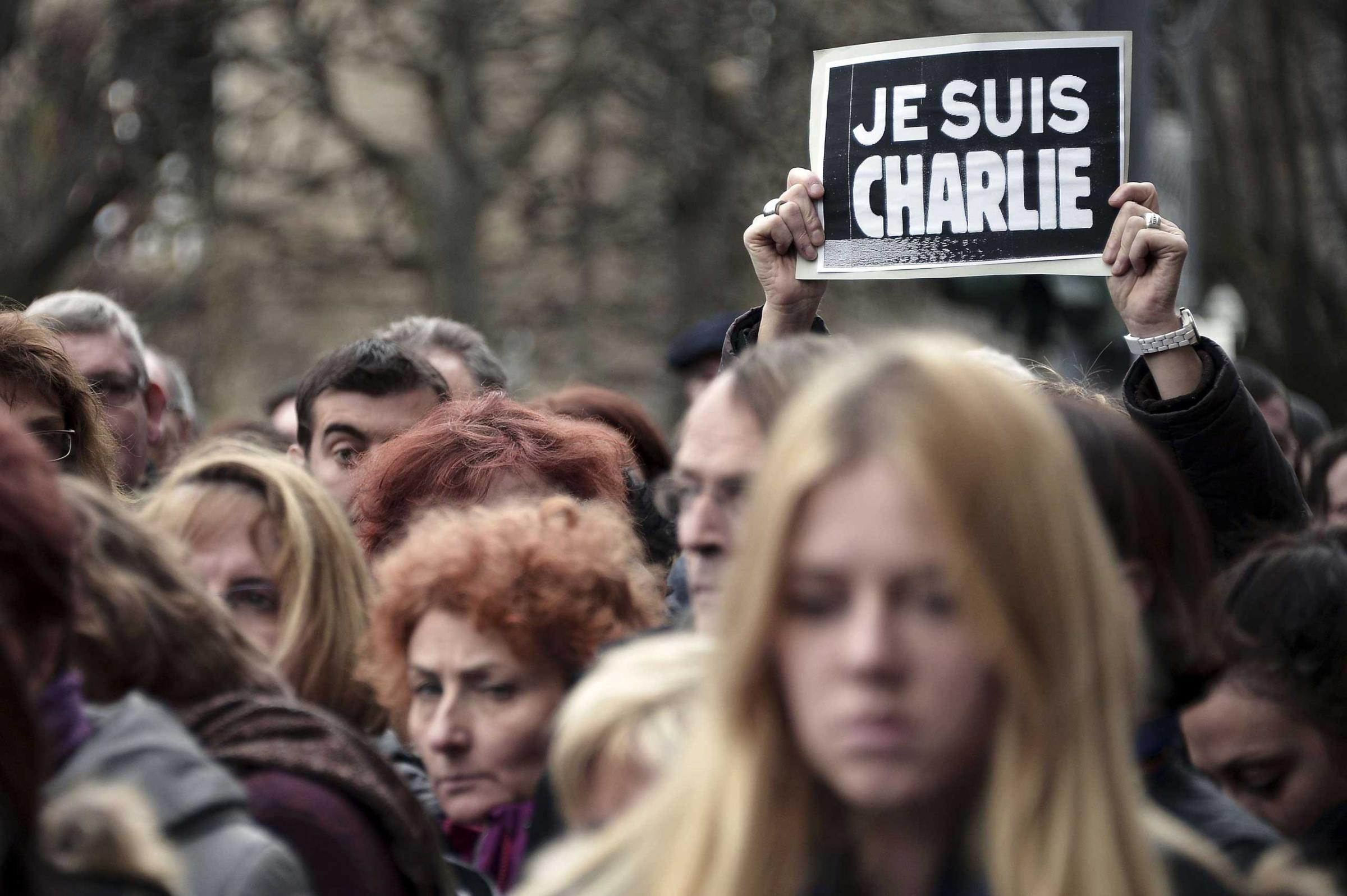
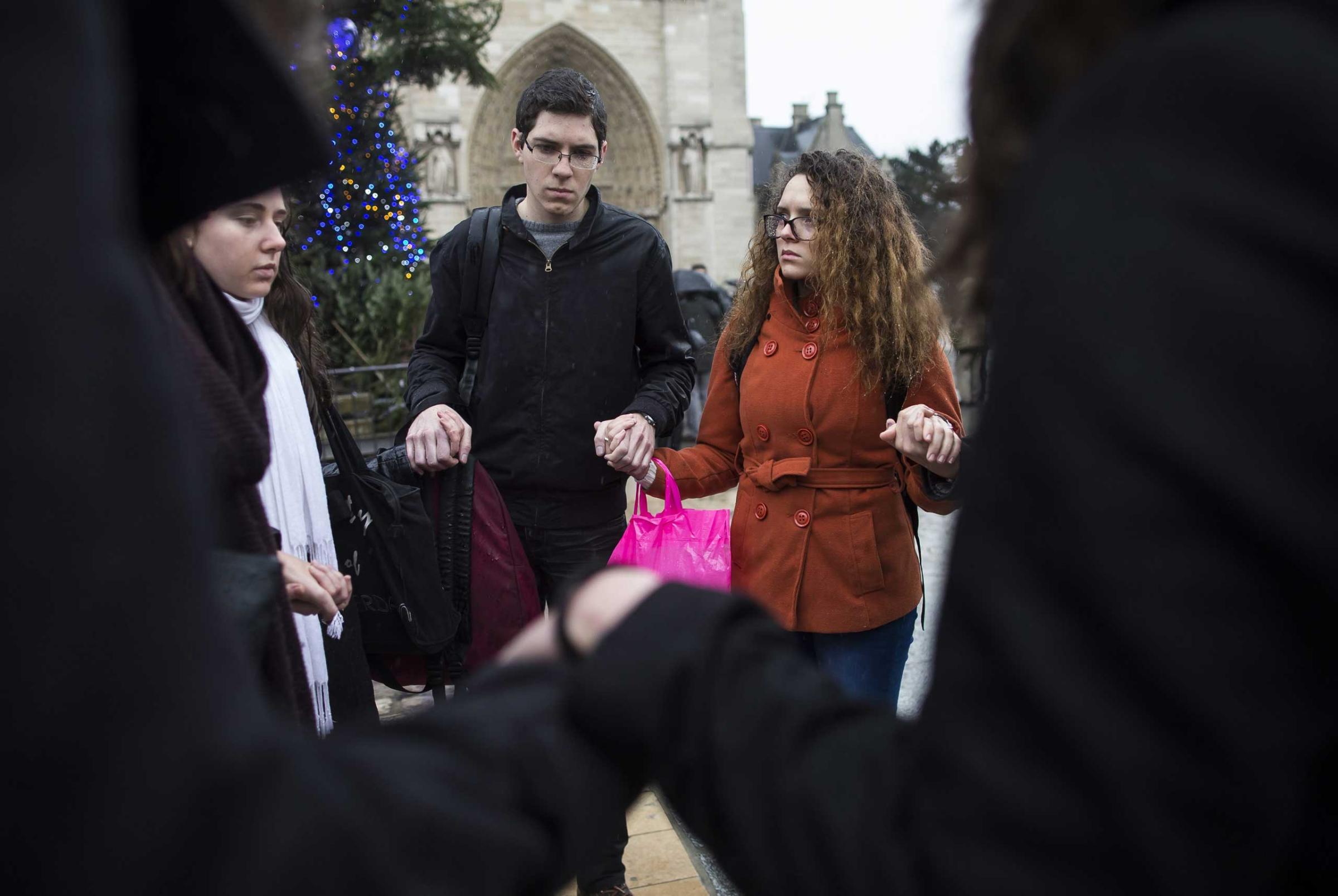
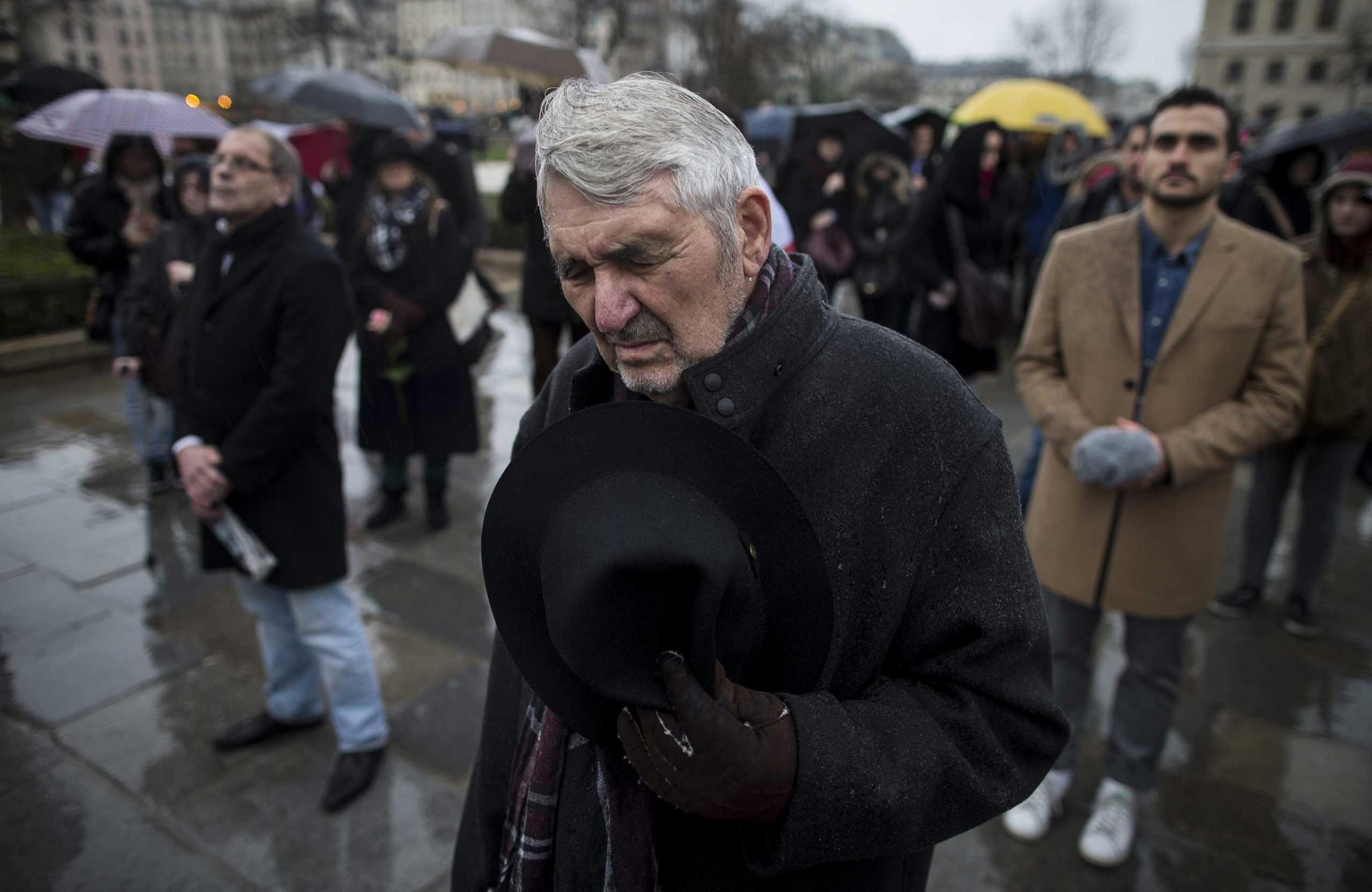

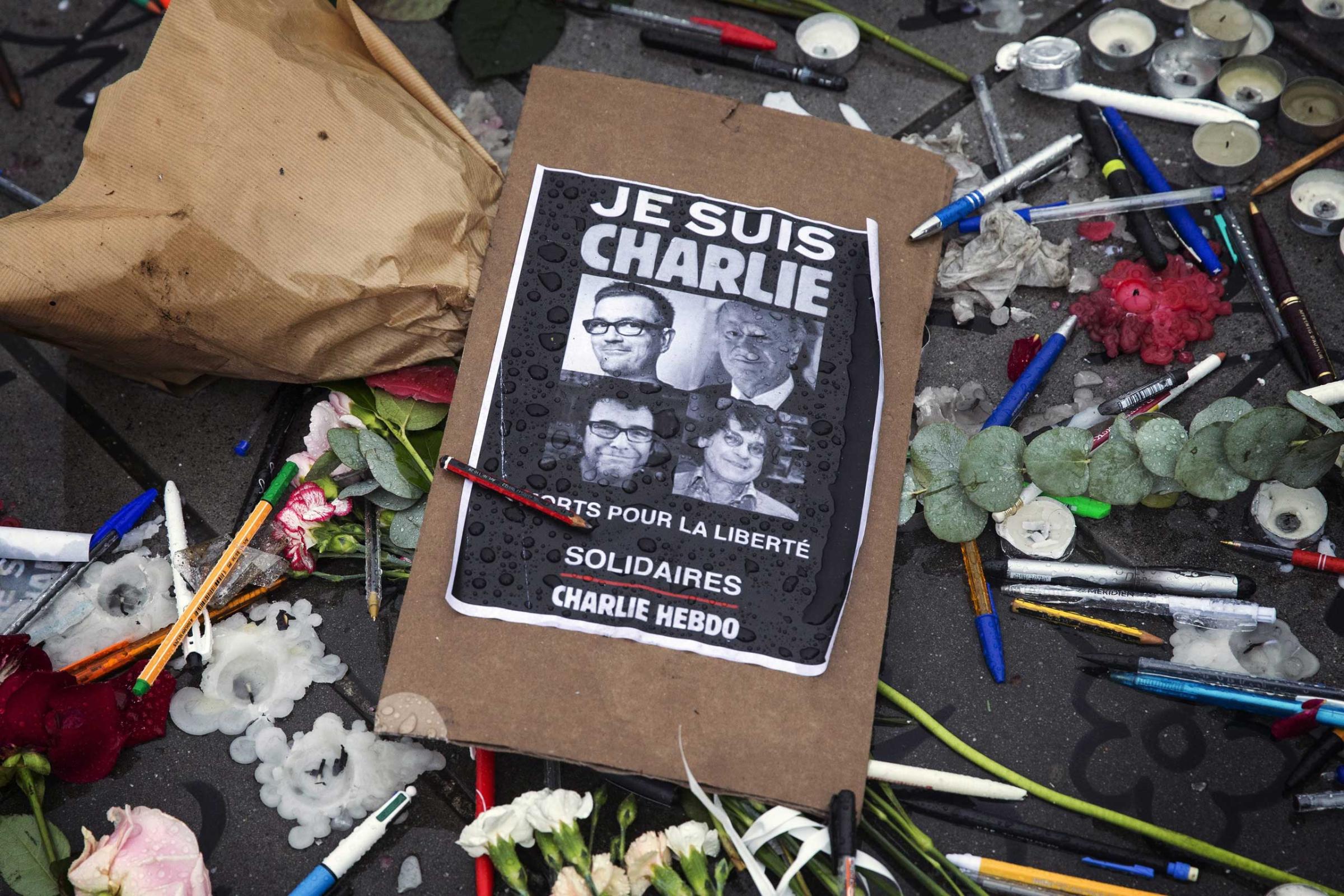
Modern France thus produced a strong tradition, especially in Paris, of opposition to organized religion, and satire of its pretensions. Charlie Hebdo succeeded a long line of satirical magazines that ridiculed religion, and Charlie took down all with pretensions: Christians, Muslims, Michael Jackson—everyone.
Third, the attack risks to add fuel to the rise of the Far Right in France and throughout Europe. The National Front is already spinning the attack as showing up the basic incompatibility of Islam and the values of France. Even as its leader, Marine Le Pen, the much smoother political heir to her father, Jean-Marie, maintains a moderate line, officially stating that France was united for freedom of expression, she added that “the time for hypocrisy was over,” and that not confusing Islam with terrorism not ought to lead us to deny the obvious. Some of her lieutenants went further, attacking Islam directly, and the immediate commentators to Le Monde’s on-line coverage overwhelmingly took this line: anti-religion and anti-Islam.
France will not change its decades-old foreign policy, nor are rights and practices of satire likely to fade away. But the main impact may be to use the attacks as an excuse to blame Islam and immigration for broad anxieties about where things are going in Europe today. Such a confusion can only strengthen the far right.
John R. Bowen is a Professor of Anthropology at Washington University in St. Louis, and author of Can Islam be French, Blaming Islam, and the forthcoming Shari’a in Britain.
Front Pages React to Paris Terror Attack
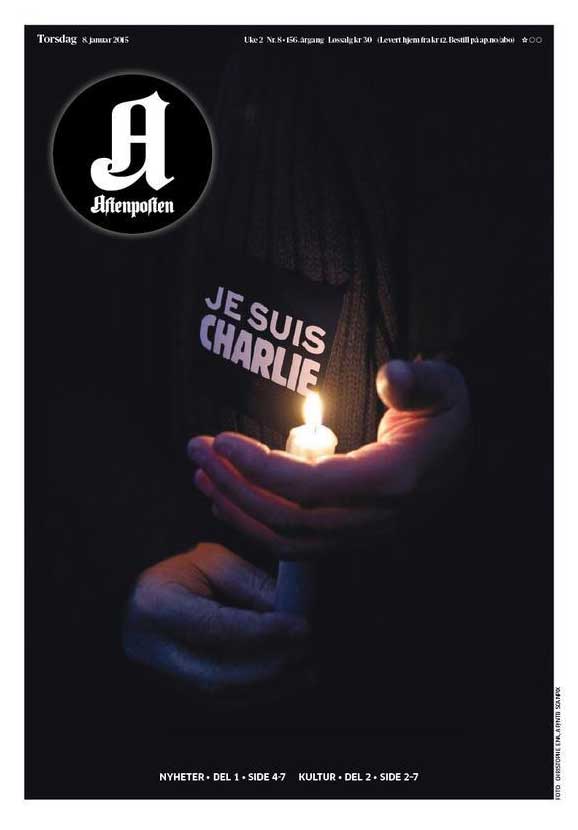
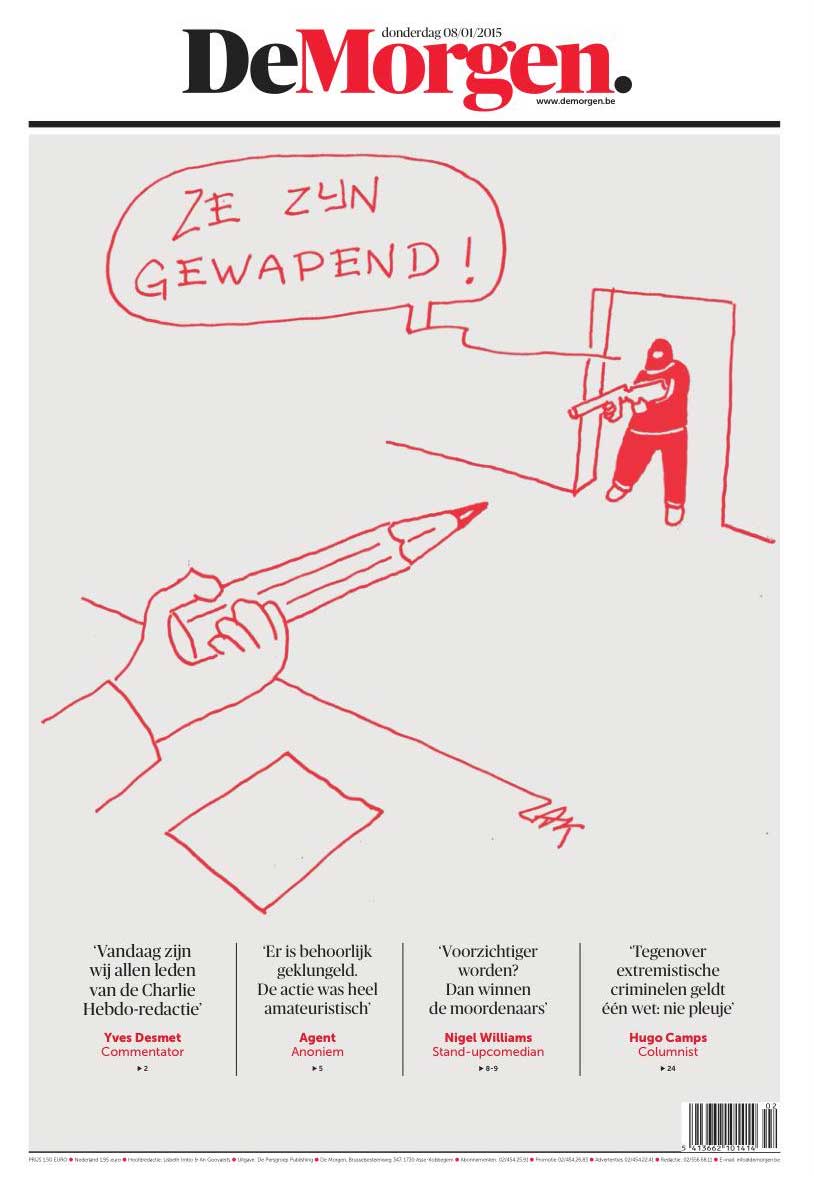
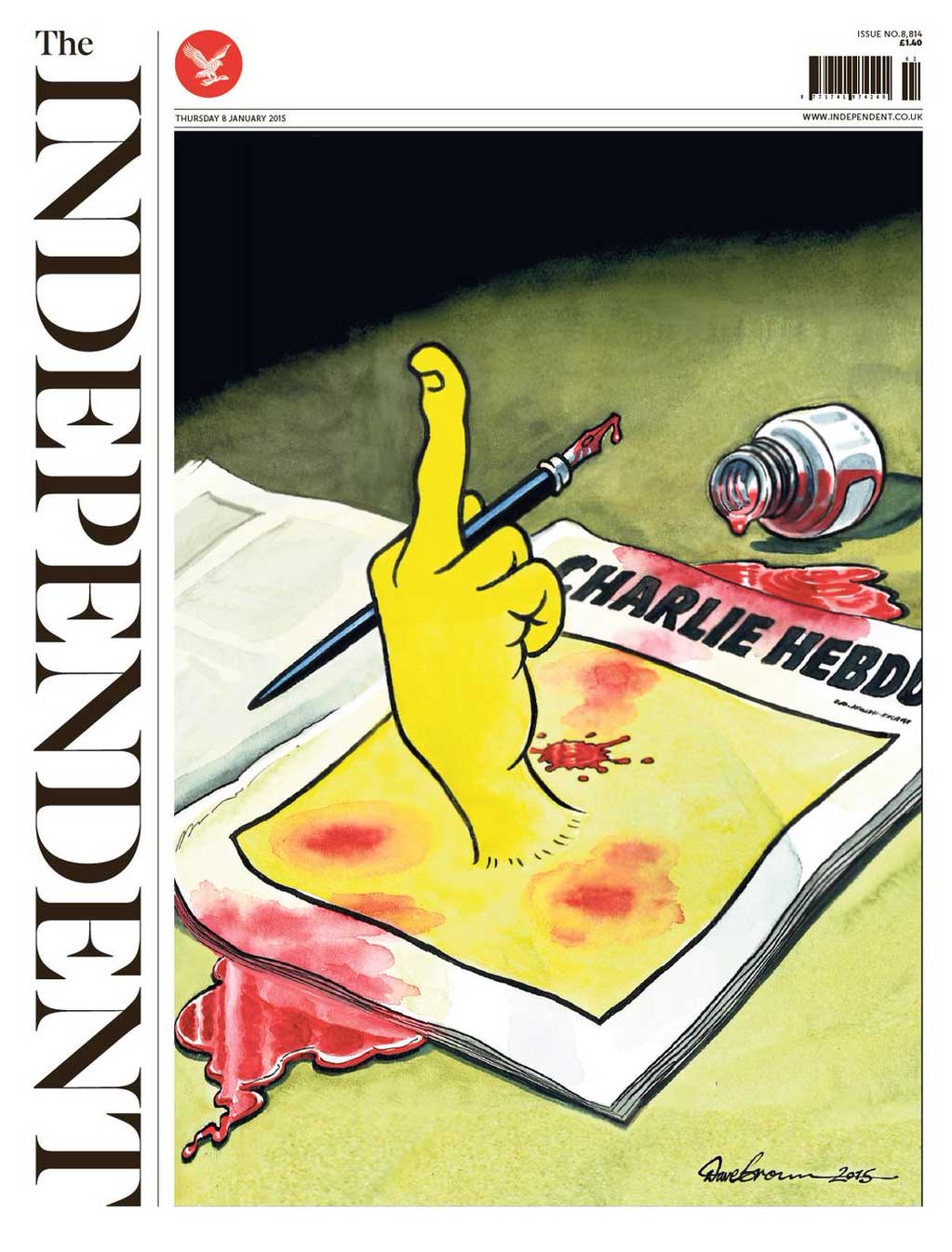
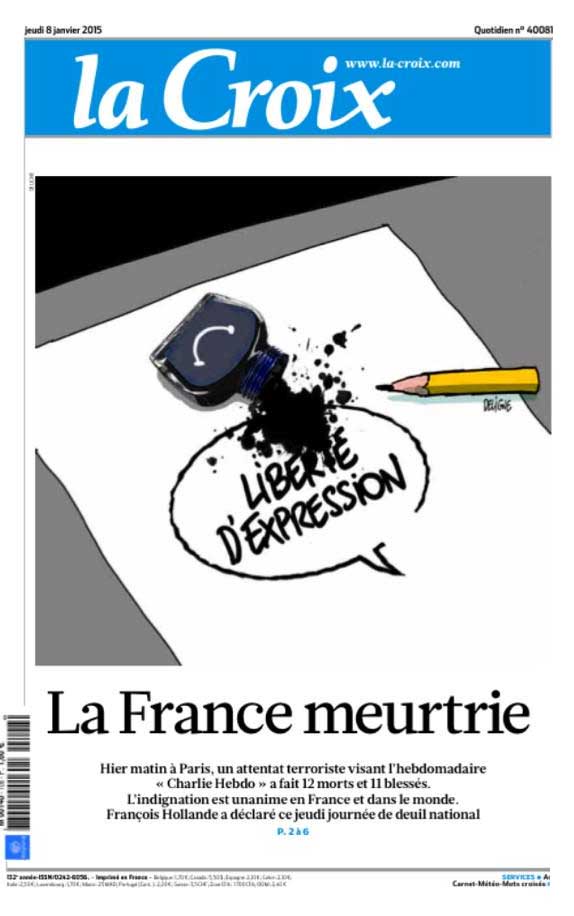
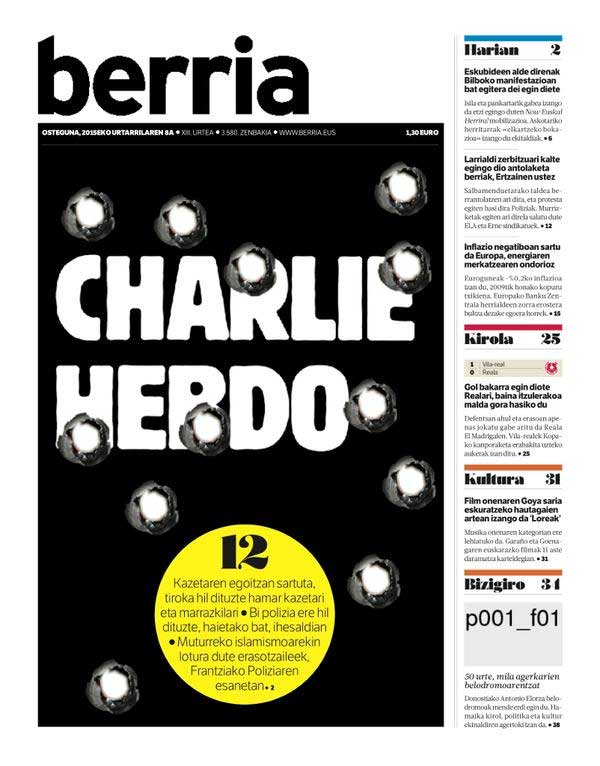
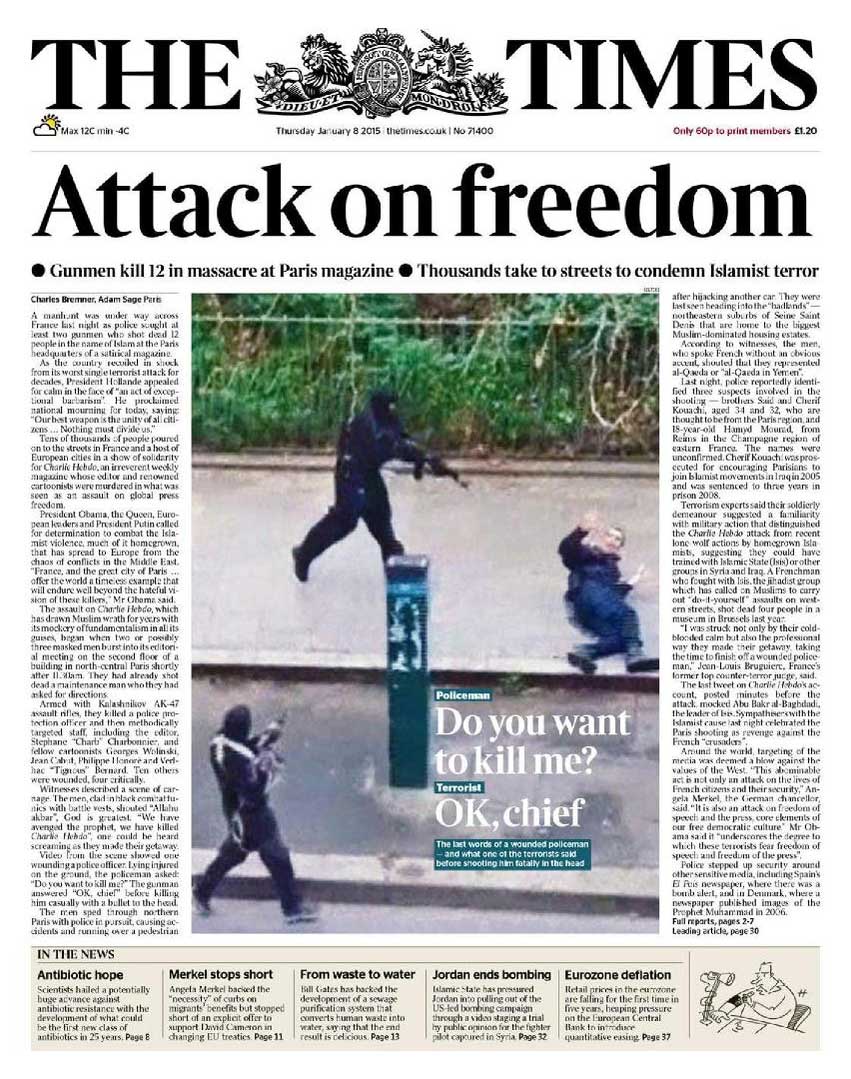
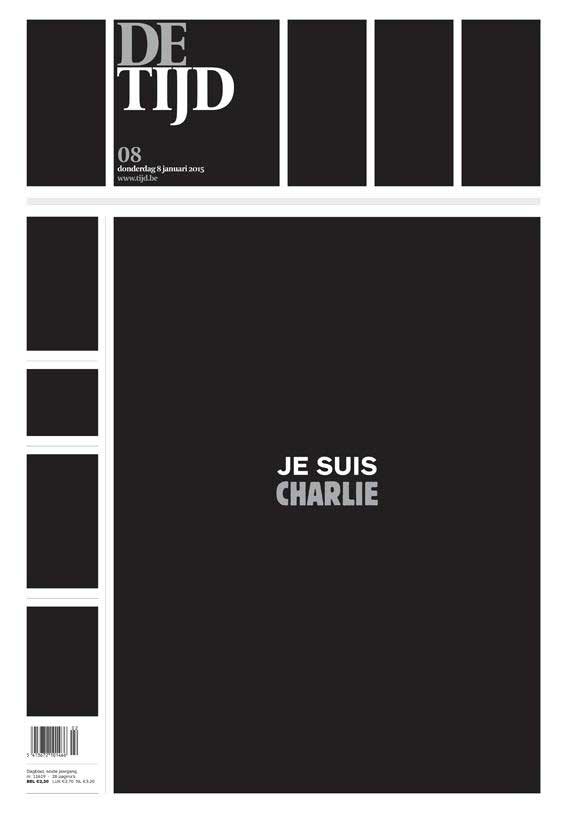
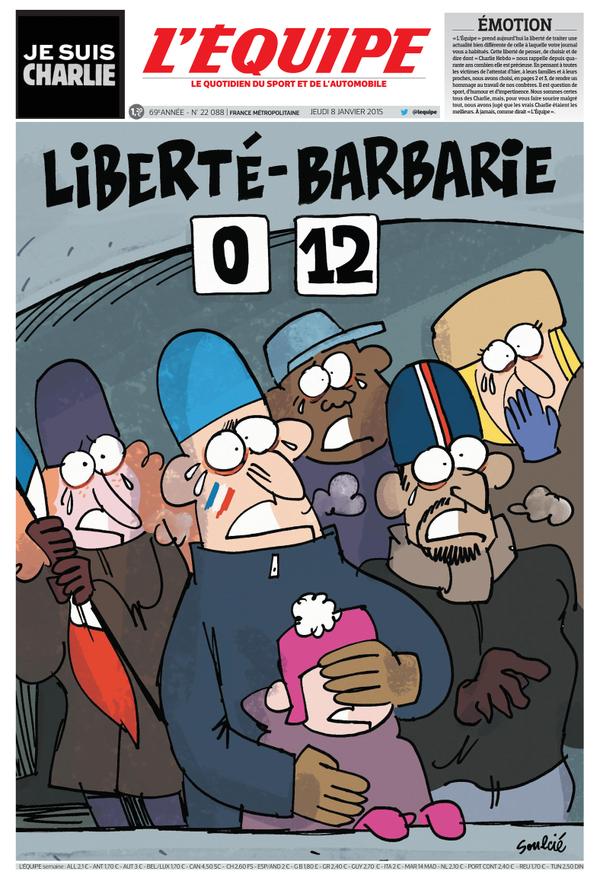
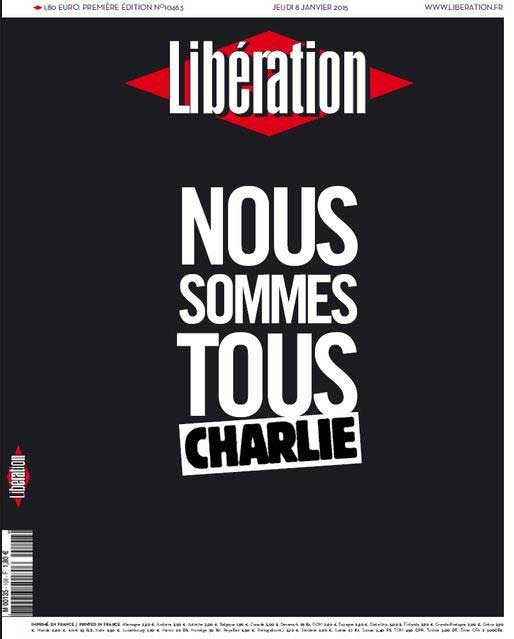
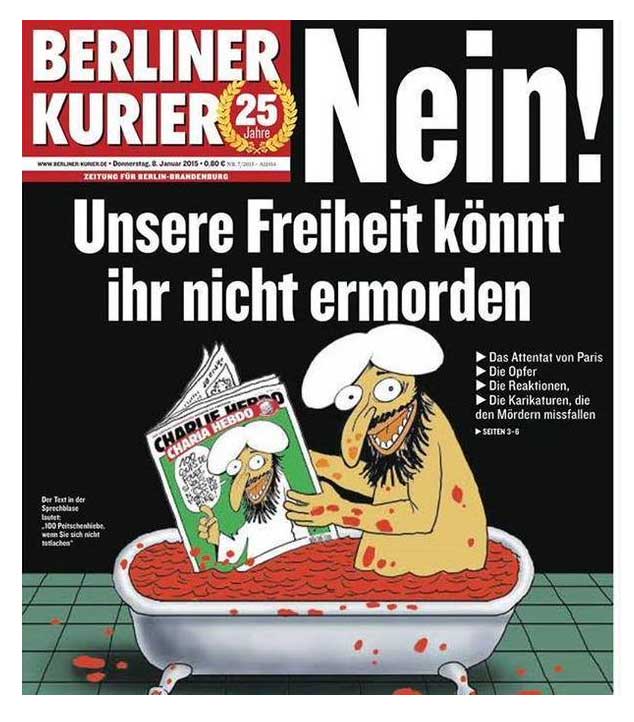
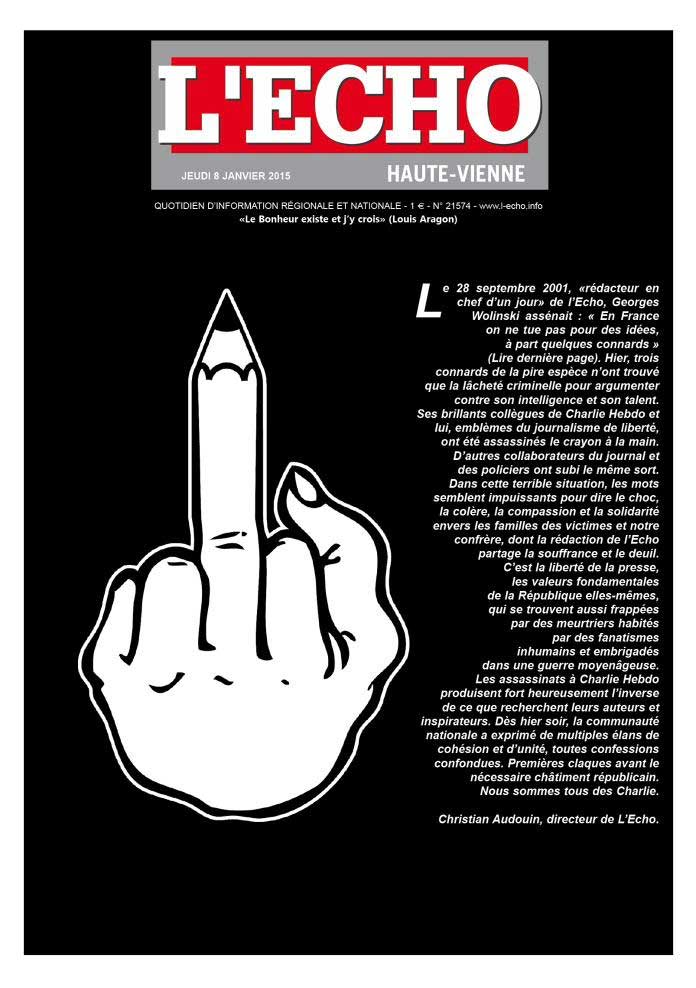
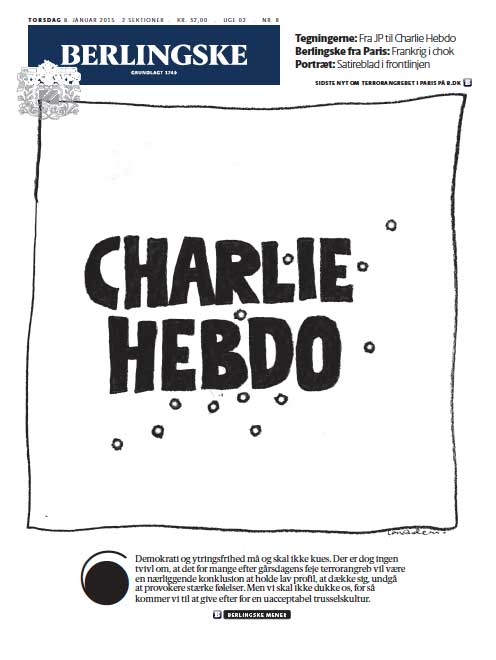
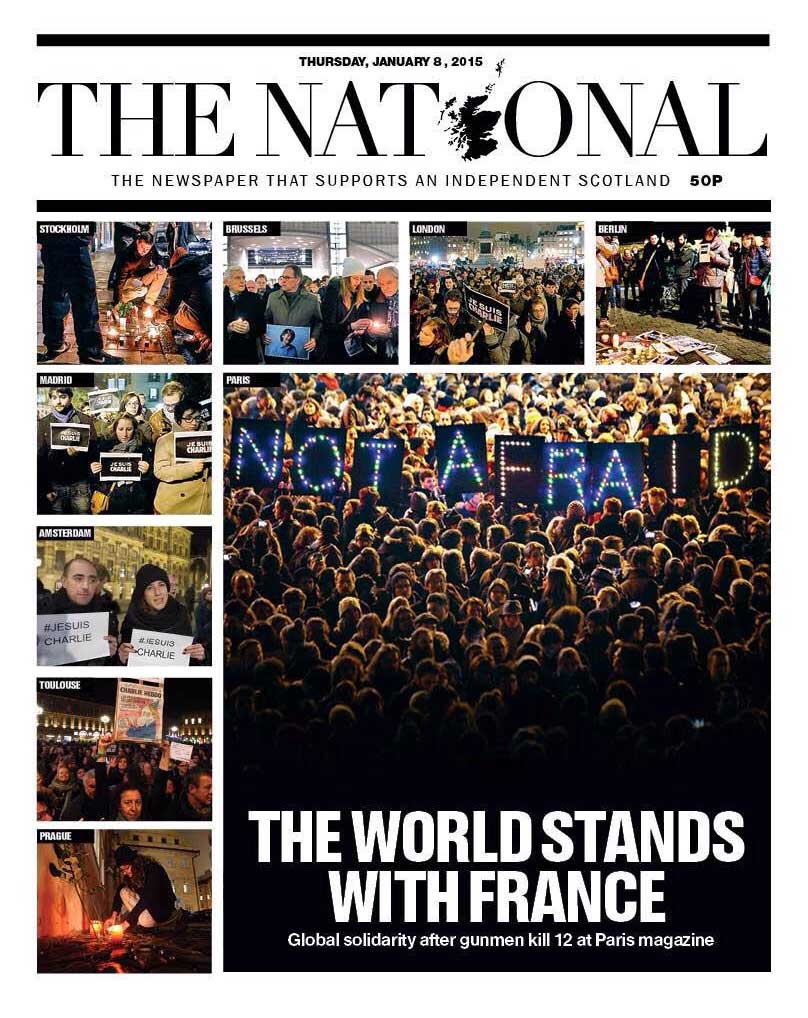
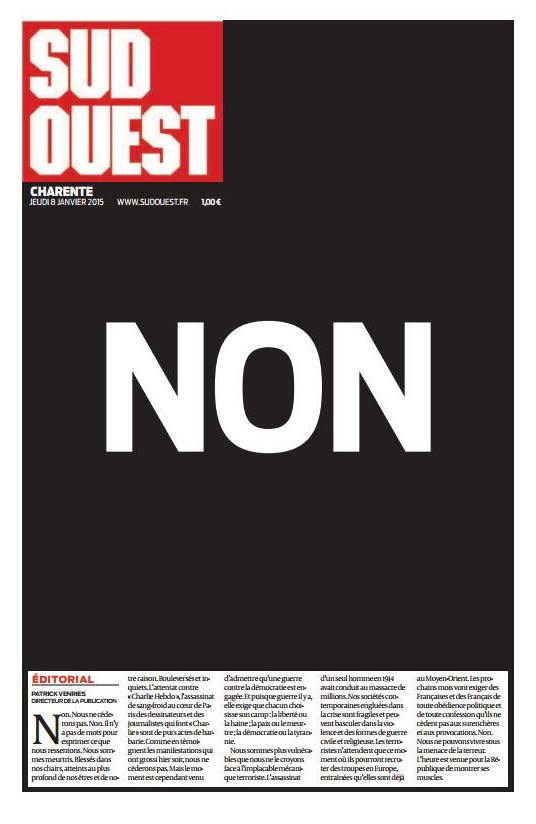
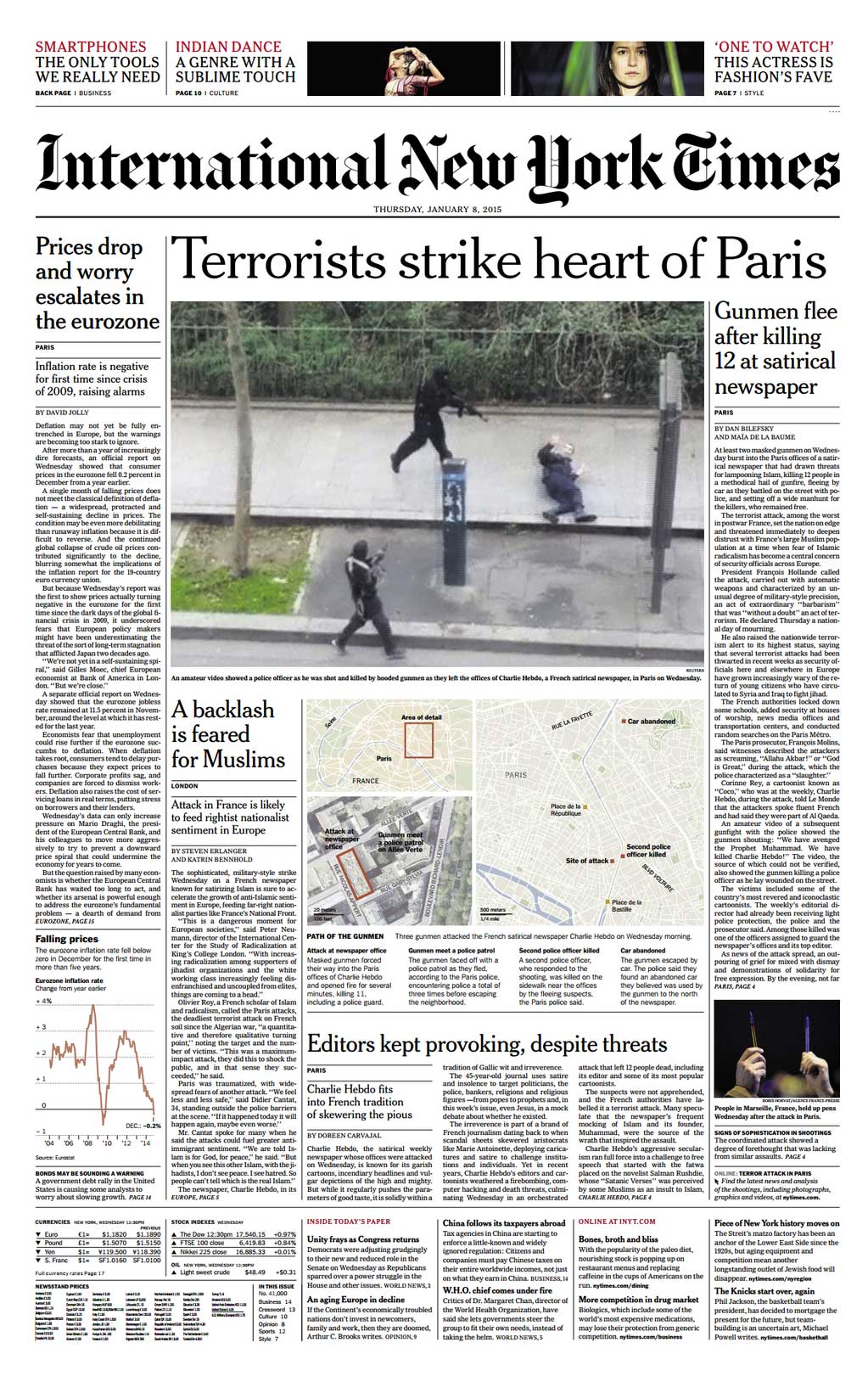
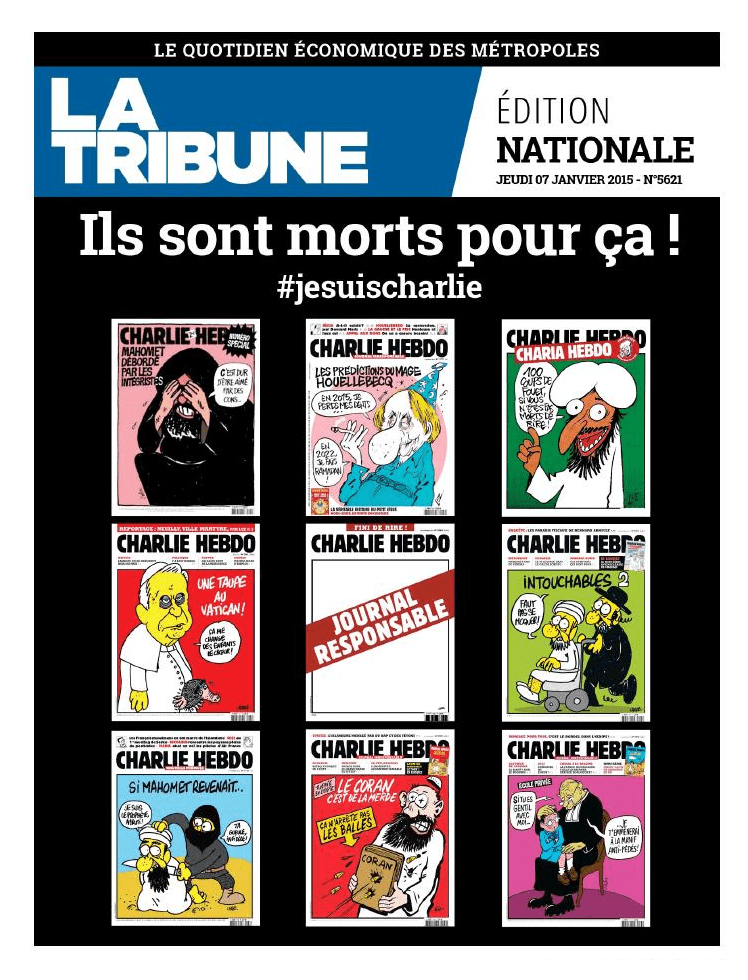
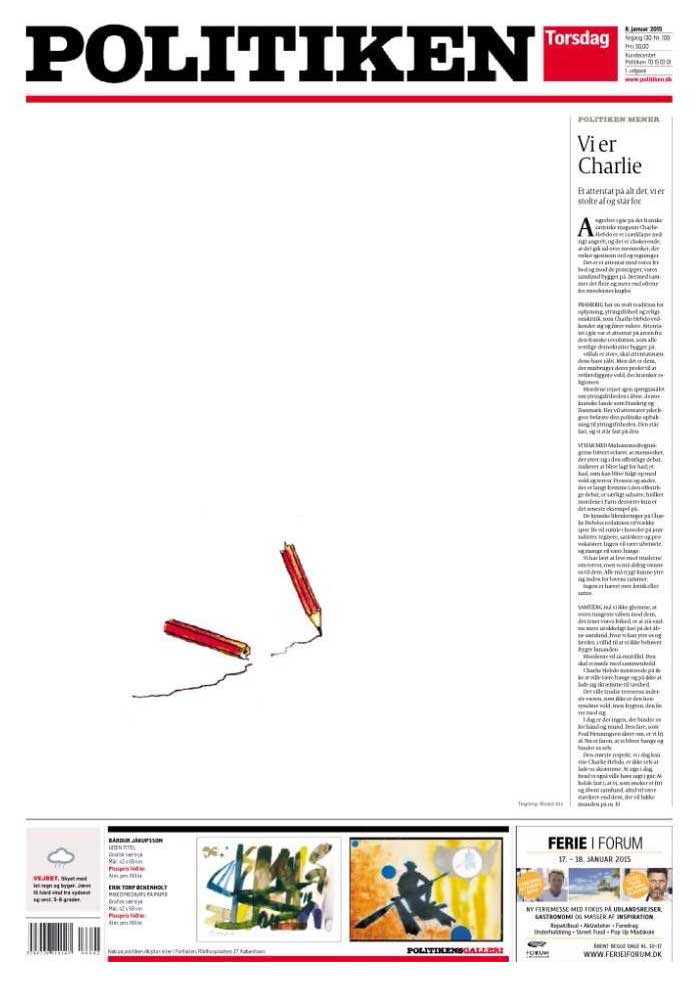
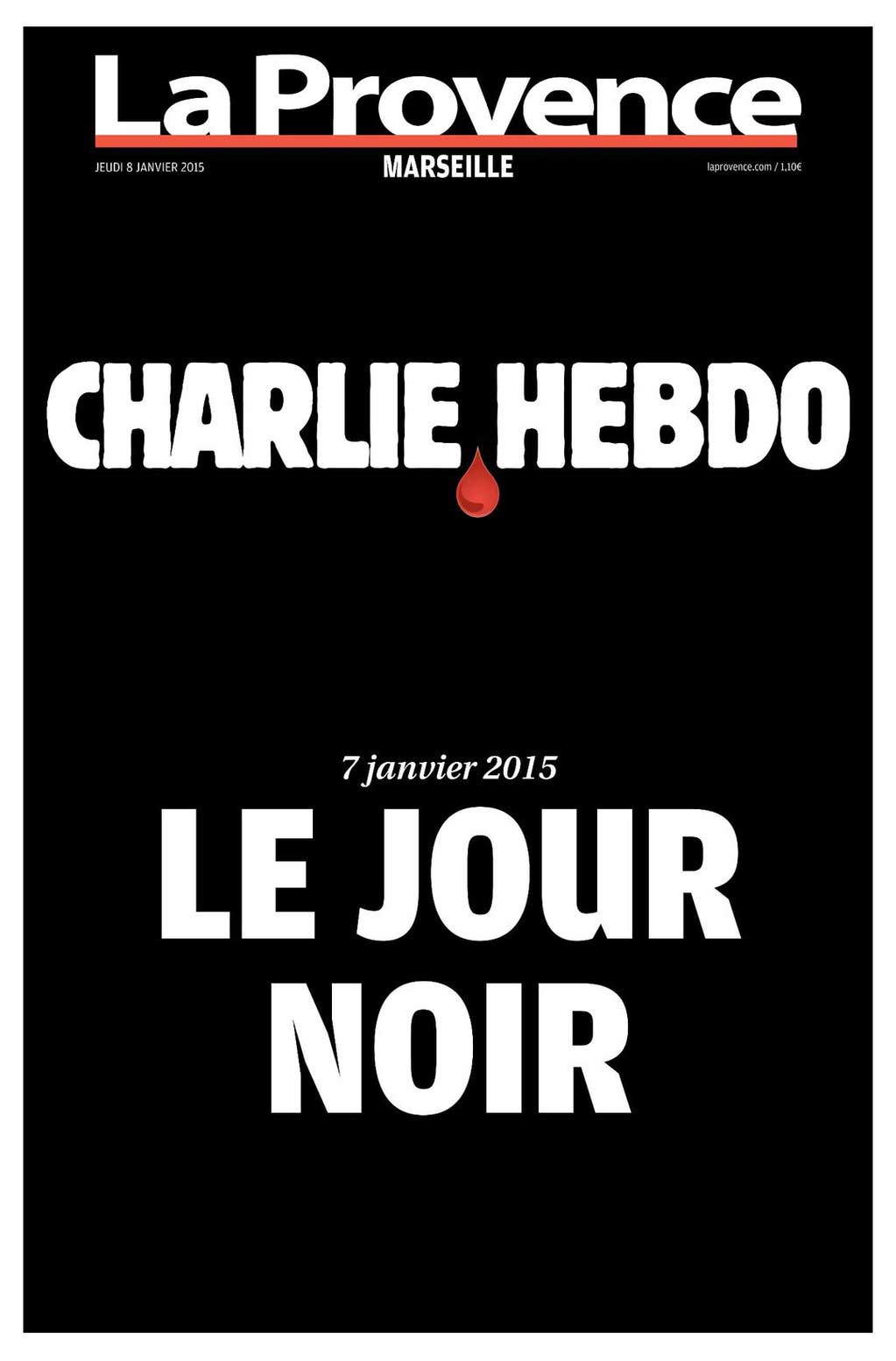
More Must-Reads from TIME
- Why Trump’s Message Worked on Latino Men
- What Trump’s Win Could Mean for Housing
- The 100 Must-Read Books of 2024
- Sleep Doctors Share the 1 Tip That’s Changed Their Lives
- Column: Let’s Bring Back Romance
- What It’s Like to Have Long COVID As a Kid
- FX’s Say Nothing Is the Must-Watch Political Thriller of 2024
- Merle Bombardieri Is Helping People Make the Baby Decision
Contact us at letters@time.com